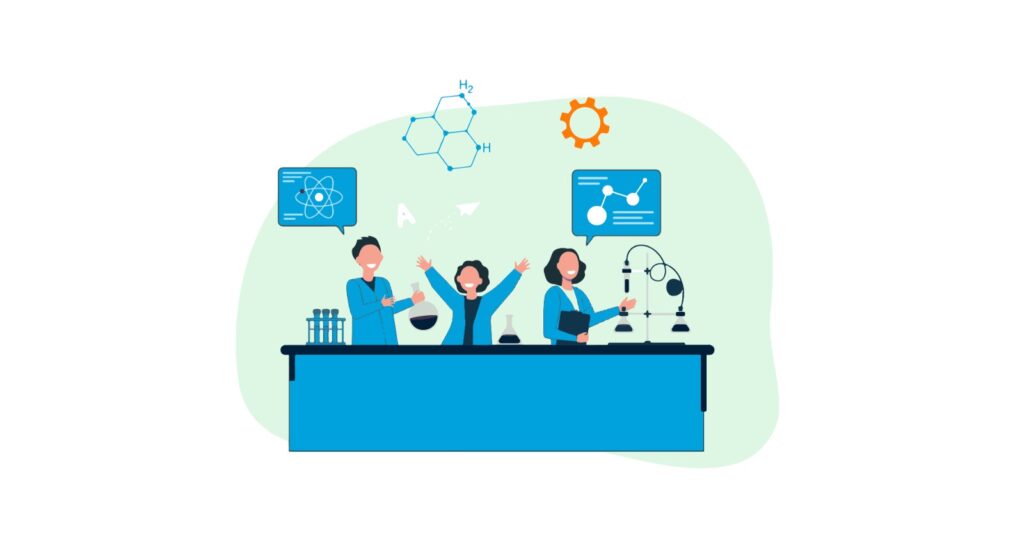Möbius: Transforming STEM Education with ICT Tools

In the rapidly evolving landscape of education, the integration of Information and Communication Technology (ICT) tools into Science, Technology, Engineering, and Mathematics (STEM) education is no longer a futuristic concept—it’s a present-day necessity. The traditional methods of teaching STEM subjects, characterized by textbook-centric instruction and a one-size-fits-all approach, are proving inadequate for meeting the diverse needs of today’s learners. To bridge this gap, innovative ICT tools are transforming STEM education, making it more engaging, accessible, and effective.
Understanding ICT in Education
ICT in education involves using digital tools and technologies to enhance the teaching and learning process. These tools range from basic devices like computers and tablets to sophisticated software that supports:
- Content Creation: Tools that help educators develop interactive and engaging materials.
- Digital Assessments: Platforms that allow for automated grading and instant feedback.
- Personalized Learning: Software that adapts to individual learning styles and paces.
- Student Management: Systems that streamline the monitoring of student progress.
In STEM education, ICT tools are essential for moving beyond traditional teaching methods, offering a more dynamic and interactive learning experience.
The Significance of ICT Tools in STEM Education
ICT tools play a vital role in STEM education by fostering an environment that encourages critical thinking, creativity, and problem-solving. Here’s how they make a difference:
- Simplifying Complex Concepts: Digital simulations and visualizations help students grasp difficult STEM concepts.
- Real-World Applications: For instance, using software like MATLAB, students can simulate real-world engineering problems, allowing them to apply theoretical knowledge practically.
- Catering to Diverse Learning Styles: Whether through visual aids, interactive content, or digital experiments, ICT tools make learning more inclusive and personalized.
By providing varied approaches to learning, ICT tools ensure that every student engages with the material in a way that suits them best.
Enhancing Student Engagement with ICT Tools
One of the biggest challenges in STEM education is maintaining student engagement. Traditional methods often fail to keep students interested, leading to disengagement and a lack of motivation. ICT tools counter this by transforming passive learning into an active, participatory process.
Platforms like Möbius, designed specifically for STEM education, enhance engagement through:
- Interactive Content Creation: Students actively participate in creating digital content, which deepens their understanding.
- Automated Grading and Feedback: Instant feedback keeps students informed of their progress, allowing them to correct mistakes in real-time.
- In-Depth Analytics: Educators can track student engagement and performance, making necessary adjustments to their teaching strategies.
By offering a more tailored learning experience, these tools keep students interested and motivated, ultimately improving learning outcomes.
Learn more: Möbius STEM Learning: Unlocking the Potential of India’s Future
The Role of ICT Tools in Digital Assessment
Assessment is a cornerstone of education, especially in STEM subjects where understanding and application of concepts are crucial. ICT tools are transforming the assessment process with:
1. Automated Grading: Saving educators time while ensuring consistency and fairness.
2. Instant Feedback: Helps students learn from their mistakes immediately, reinforcing understanding.
3. Diverse Question Types: Platforms like Möbius offer a variety of assessment formats, including:
- Algorithmic Questions: Problems that generate different data sets for each student.
- Adaptive Assessments: Tests that adjust in difficulty based on student responses.
- In-line Questions: Embedded in digital content, these questions help reinforce learning as students progress.
These tools not only make assessments more efficient but also more effective in supporting student learning.
Maximizing Accessibility and Inclusivity with ICT Tools
Accessibility is a critical issue in education, particularly in STEM fields, where resources and opportunities can be unevenly distributed. ICT tools help address this by making high-quality education more accessible:
- Remote Access: Digital platforms can be accessed from anywhere, eliminating geographical barriers.
- Support for Disabilities: Tools like text-to-speech and customizable interfaces ensure that students with disabilities can fully participate.
- Multi-Language Support: Platforms that cater to multiple languages make STEM education more inclusive.
By broadening access, ICT tools help create a more equitable learning environment.
Personalized Instruction and Feedback through ICT Tools
Personalization is a significant trend in education, and ICT tools are leading this movement. By leveraging data and analytics, these tools provide personalized instruction tailored to each student’s needs:
- Customized Learning Paths: Advanced algorithms in platforms like Möbius create individualized learning experiences based on student performance.
- Targeted Feedback: Students receive specific guidance on areas that need improvement, enhancing their understanding and progress.
- Adaptive Learning Systems: These systems adjust the difficulty level of assignments based on student responses, ensuring that each student is appropriately challenged.
This personalized approach keeps students engaged and motivated, helping them achieve their full potential.
Promoting Inclusive Education with ICT Tools
Inclusive education ensures that all students, regardless of their background or abilities, have access to quality education. ICT tools are instrumental in promoting inclusivity by:
- Customizable Content: Educators can adapt digital content to meet diverse learning needs.
- Accessible Design: Features like adjustable text sizes, color contrast options, and screen reader compatibility make platforms like Möbius more accessible.
- Support for Diverse Populations: Multi-language options and culturally relevant content help cater to students from various backgrounds.
These tools ensure that every student has the opportunity to succeed in STEM education, making the learning environment more welcoming and inclusive.
Conclusion: Embracing the Future of STEM Education
As the digital age progresses, the role of ICT tools in education will continue to expand. In STEM education, where engaging with complex concepts is crucial, these tools are transforming the learning experience into something more dynamic, personalized, and accessible.
For educators and institutions, integrating ICT tools into their curriculum is not just an option—it’s a necessity. Möbius, by DigitalEd India, offers a comprehensive suite of tools that support every aspect of STEM education, from content creation to student management.
Ready to experience the future of STEM education? Book a personalized demo of Möbius today and see how our platform can transform your teaching and learning experience.